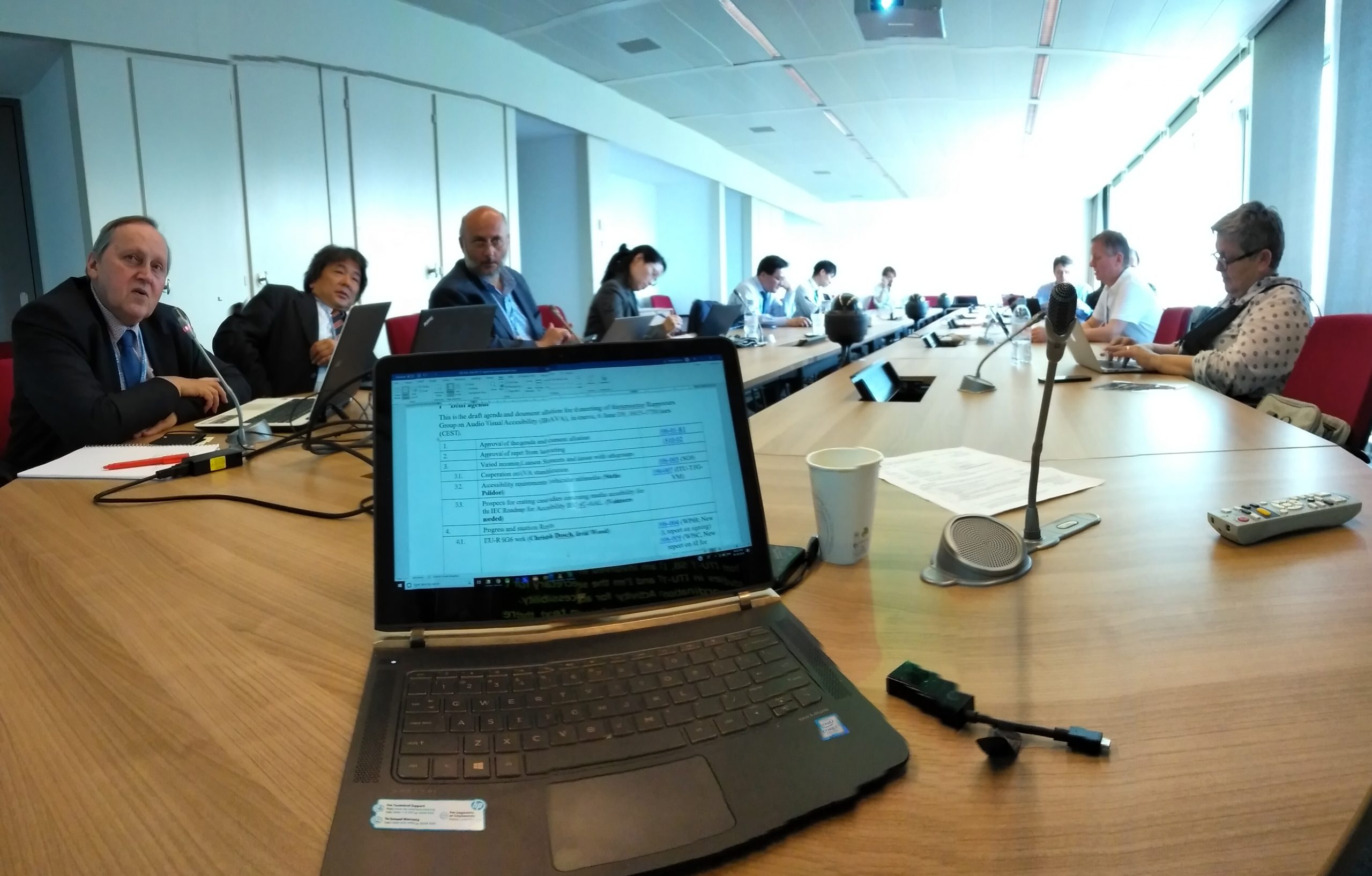
Pradipta Biswas chaired a meeting at the UN on access to audiovisual media this week.
A Gates Cambridge Alumnus chaired a meeting at the United Nations on promoting accessibility in audio visual media in Geneva this week.
Pradipta Biswas [2006] who is Assistant Professor at the Centre for Product Design and Manufacturing of the Indian Institute of Science, chaired the International Telecommunications Union meeting meeting on 6th June. Pradipta is co-chair of the Intersector Rapporteur Group Audiovisual Media Accessibility [IRG AVA] of the International Telecommunication Union.
The IRG AVA studies topics related to audiovisual media accessibility and aims to develop draft recommendations for "Access Systems" that can be used for all media delivery systems, including broadcast, cable, Internet and IPTV. It also addresses matters relating to standardisation of relevant ITU groups and collaborates with other organisations, such as media organisations and academics.
The IRG AVA meeting was attended by representatives from the BBC, the European Broadcasting Union, Japanese broadcaster NHK, the Swiss Public Broadcaster, the World Federation of the Deaf, the International Organisation for Standardisation and the International Electrotechnical Commission.
The discussion covered a number of issues, ranging from accessibility of vehicular multimedia for both manned and autonomous vehicles, using sign language on broadcast programmes and using Artificial Intelligence for boosting the accessibility of broadcast programmes to the audio visually impaired to providing an update on a newly formed EU cluster of projects promoting accessibility and on a joint project between Microsoft and Indian Institute of Science on developing eye gaze controlled accessibility systems. The next meeting will be held in October.
Pradipta did his PhD in Computer Science. His research focuses on user modelling and multimodal human-machine interaction for aviation and automotive environments and for assistive technology.

Pradipta Biswas
- Alumni
- India
- 2006 PhD Computer Science
- Trinity College
Pradipta Biswas is an Assistant Professor at the Centre for Product Design and Manufacturing of Indian Institute of Science. His research focuses on user modelling and multimodal human-machine interaction for aviation and automotive environments and for assistive technology. Earlier, he was a Senior Research Associate at Engineering Department, Research Fellow at Wolfson College and Research Associate at Trinity Hall of University of Cambridge. He completed PhD in Computer Science at the Rainbow Group of University of Cambridge Computer Laboratory and Trinity College in 2010 and was awarded a Gates-Cambridge Scholarship in 2006. He undertook a first degree in Information Technology at the University of Kalyani and a master degree at the Indian Institute of Technology, Kharagpur. He conducts a course on Human Computer Interaction at Indian Institute of Technology, Mandi, guest lecture at Indian Institute of Technology, Madras and was a vice chairman of ITU-T Focus Group on Smart TV.












